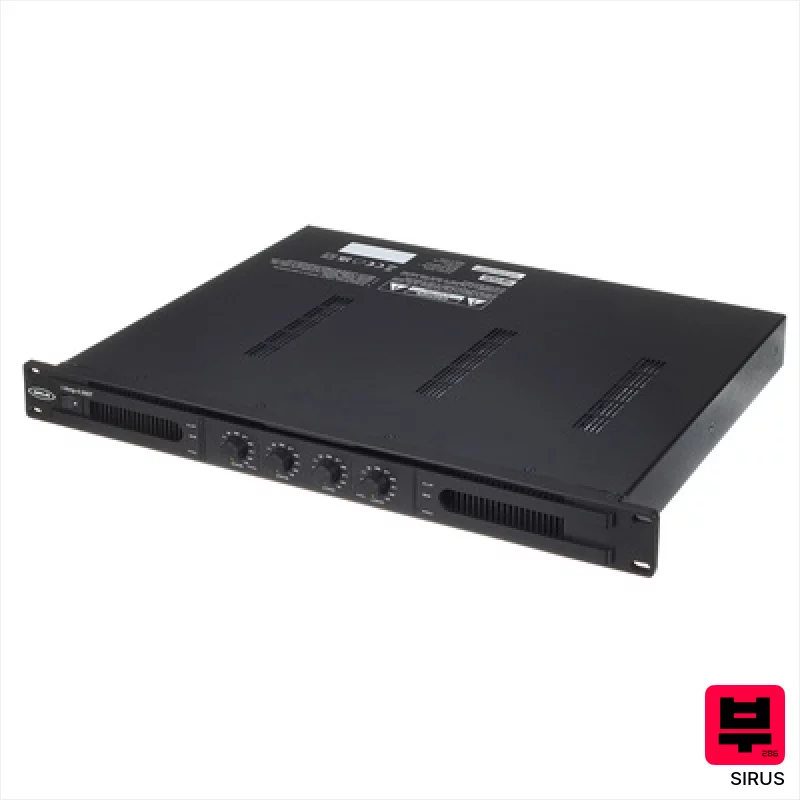Best Sirus Installation Amps 2026
Premium Sirus installation amps - legendary tone and craftsmanship
Last updated: February 4, 2026 • Next update: February 11, 2026

Sirus I-Amp 4.500
- • Reliable for continuous operation
- • Often includes 70V/100V transformer outputs
- • Limited flexibility once installed
- • Requires professional installation
Sirus I-Amp 4.5004 Channel Installation ampliierClass-D amplifierLow-noise and low-distortion due to high-current...

Sirus I-Amp 1.300T
- • Designed for permanent installation
- • Multi-zone capabilities
- • May lack features needed for live sound
- • Limited flexibility once installed
Sirus I-Amp 1.300T1-Channel Installation AmplifierPower: 1x 300 watts @ 70/100V (RMS)Class D amplifierPerfect for...

Sirus I-Amp 4.500T
- • Designed for permanent installation
- • Multi-zone capabilities
- • Requires professional installation
- • Limited flexibility once installed
Sirus I-Amp 4.500T4-Channel Installation AmplifierPower: 4x 480 Watt @ 70/100V (RMS)Class-D AmplifierLow-noise and...

Sirus I-Amp 8.150T
- • Reliable for continuous operation
- • Designed for permanent installation
- • Not designed for portable applications
- • Requires professional installation
Sirus I-Amp 8.150T8 Channel Installation ampliierOutput: 8x 150 Watt @ 70/100V (RMS)Class-D AmpIdeal for installations...

Sirus I-Amp 8.150
- • Often includes 70V/100V transformer outputs
- • Professional installation features
- • Limited flexibility once installed
- • More expensive than general-purpose amps
Sirus I-Amp 8.150 - 8 Channel Installation ampliier8-Channel Installation AmplifierPower: 8x 130 W @ 4 Ohm / 8x 70 W @...
How to Choose the Best Installation Amps
Budget Planning
- • Under $200: Entry-level
- • $200-$500: Intermediate
- • $500-$1000: Advanced
- • $1000+: Professional
Quality Check
- • Sound clarity & tone
- • Build materials & finish
- • Hardware durability
- • Overall craftsmanship
Key Features
- • Your musical style
- • Skill level match
- • Intended use case
- • Brand reputation

